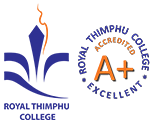RTC Happenings
This series of iterative discussions with tutors is designed for collaboration with tutors nominated by programme leaders. The discussions will focus on addressing specific needs and challenges within their programme.
Since the sessions were incomplete with some tutors in the previous semester, the same topics will continue into the upcoming semester. Our goal is to provide an opportunity for those tutors to contribute, share insights, and actively participate in designing coursepack and effective classroom activities.
| Topic | Facilitator | Description |
|---|---|---|
| Coursepack | CITL | The sessions on ‘coursepack’ will cover various aspects, including selecting and curating materials, designing course pack structures, and promoting active learning. These sessions are aimed at providing tutors with the knowledge and skills to use coursepack materials effectively in their teaching practice. |
| Classroom Activity -Lecture and Q&A | CITL | The purpose of this need-based session is to provide an overview of conducting engaging lectures and facilitating interactive Q&A sessions in the classroom. During the sessions, various components of the teaching-learning process such as lecture delivery techniques, creating interactive Q&A sessions, and improving questioning and response techniques, etc. will be discussed. |
1: How does the credit transfer system work for the Study Abroad Programme?
The credit transfer system involves assessing the courses you complete abroad and equating them to RTC’s curriculum. Consult with IRO to ensure a smooth transfer and maximize the recognition of your overseas studies.
2: What are the conditional fees payable to RTC (home university) for participating in the Study Abroad Programme?
Conditional fees vary based on the exchange requirements of the selected region.
3: How does the visa process work for studying abroad?
The visa process depends on the host country. The participants shall carry out the Schengen Visa Application Process at VFS in Thimphu, located in Thimphu Plaza, 5th floor, Chang Lam for the study abroad programs in the following countries (subject to change):
- Denmark
- Switzerland
- Germany
- Sweden
- Belgium
- France
- Norway
- Czech Republic
- Lebanon
- Austria
Visa application for the USA needs to be done in New Delhi, India. The visa application process will be explained by the International Relations Officers after selection and confirmation of the programme.
4: What are the overall expenses for the Study Abroad Programme?
Total expenses include conditional fees, visa fees, airfare to Delhi (in case your study abroad destination’s visa application is not listed in the Thimphu VFS List), transportation, health insurance, and personal expenses. Students are expected to create a budget considering these factors.
5: Are there language requirements for the Study Abroad Programme?
English is the medium of study, however, students need to ensure that they meet the English proficiency standards set by the host institution, some partners provide a mandate to submit an IELTS or TOEFL test result accordingly. Some programs may offer their language courses as part of the curriculum.
6: What support services are available for international students?
Many universities offer support services such as orientation programs, academic advising, cultural integration activities, and counselling services. Familiarize yourself with the available resources to ease your transition.
7: Can I work part-time while studying abroad?
Check the regulations of the host country. Some places allow international students to work part-time during their studies on campus. Contact your focal person at the International Relations Office.
